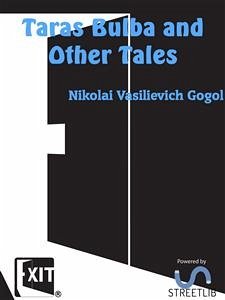INTRODUCTION
Russian literature, so full of enigmas, contains no greater creative mystery than Nikolai Vasil'evich Gogol (1809-1852), who has done for the Russian novel and Russian prose what Pushkin has done for Russian poetry. Before these two men came Russian literature can hardly have been said to exist. It was pompous and effete with pseudo-classicism; foreign influences were strong; in the speech of the upper circles there was an over-fondness for German, French, and English words. Between them the two friends, by force of their great genius, cleared away the debris which made for sterility and erected in their stead a new structure out of living Russian words. The spoken word, born of the people, gave soul and wing to literature; only by coming to earth, the native earth, was it enabled to soar. Coming up from Little Russia, the Ukraine, with Cossack blood in his veins, Gogol injected his own healthy virus into an effete body, blew his own virile spirit, the spirit of his race, into its nostrils, and gave the Russian novel its direction to this very day.
Russian literature, so full of enigmas, contains no greater creative mystery than Nikolai Vasil'evich Gogol (1809-1852), who has done for the Russian novel and Russian prose what Pushkin has done for Russian poetry. Before these two men came Russian literature can hardly have been said to exist. It was pompous and effete with pseudo-classicism; foreign influences were strong; in the speech of the upper circles there was an over-fondness for German, French, and English words. Between them the two friends, by force of their great genius, cleared away the debris which made for sterility and erected in their stead a new structure out of living Russian words. The spoken word, born of the people, gave soul and wing to literature; only by coming to earth, the native earth, was it enabled to soar. Coming up from Little Russia, the Ukraine, with Cossack blood in his veins, Gogol injected his own healthy virus into an effete body, blew his own virile spirit, the spirit of his race, into its nostrils, and gave the Russian novel its direction to this very day.









